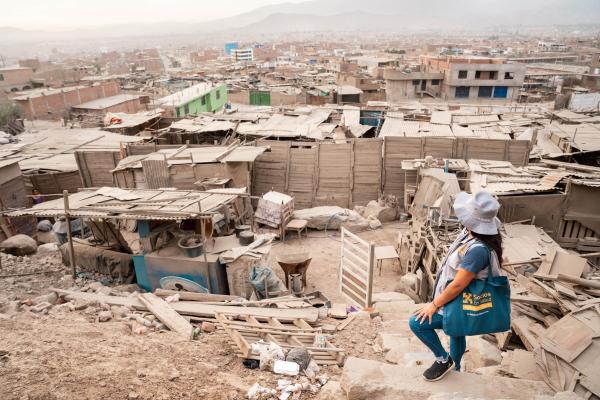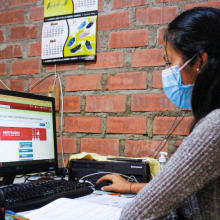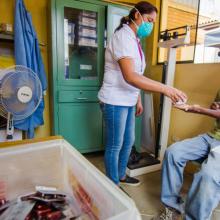Within Peru’s public health arena, community health workers (CHWs) play a crucial role in primary health care, but this is often underestimated. These workers, mostly women, act as a vital bridge between remote communities and health services.
In Peru, there are approximately 35,000 community health agents (CHAs) according to the Health Promotion Directorate of the Ministry of Health. Despite the introduction of a basic registration system that has been promoted in the last year, CHAs face significant challenges in their work. Law No. 30825 recognizes them as key players in the primary health care strategy, but does not provide them with economic incentives or opportunities for professional growth and technical training.
The ACSs work on a voluntary basis, focusing on preventive and promotional activities that facilitate access to health services for the most vulnerable communities. Although some local and regional initiatives offer them financial compensation for specific participations, these are limited and do not fairly compensate their valuable work. Training and supervision of CHWs not only enhances their skills, but also strengthens communities through local leadership, promoting universal access to health and environmental protection.
The training of CHWs and their supervision are forms of empowerment where their community leadership skills, knowledge of the health needs of the population and their commitment to provide care to the individual, family and community, promoting universal access to health care, self-care and environmental protection are harnessed.
This juncture emphasizes the need to provide adequate recognition and guarantee fair rewards to CHWs, supported by several reasons that justify their deserved recognition:
1. Connection between the community and the health system: CHWs often represent the first and sometimes the only line of communication between isolated communities and the health system. With a deep understanding of local particularities and challenges, they play a key role as mediators, facilitating community health needs to be effectively addressed.
2. Crucial support in health emergencies: In the face of health crises, such as natural disasters or epidemic outbreaks like that of COVID-19, the intervention of CHAs is essential to deploy agile and efficient responses. Their familiarity with the environment and residents allows them to provide a prompt reaction that, on many occasions, proves to be vital.
3. Health promotion and pathology prevention: The ACS are essential in health education and the promotion of healthy practices. Moreover, by enhancing community participation in health programs, they not only improve adherence to treatments, but also facilitate proper follow-up, contributing significantly to disease prevention and the improvement of public health in their communities.
4. Integration of vulnerable populations: Since ACSs come from the same communities they serve, they have an understanding of local customs and languages, which allows them to provide advice and health education in a culturally relevant and accessible manner, something that medical personnel in urban areas or outside the community often fail to do. This respectful approach to cultural diversity is key to optimizing health outcomes in diverse communities.
The formal recognition and inclusion of CHWs in the health system can strengthen the country’s capacity to address future health challenges. Training and integration of these professionals can improve the resilience and responsiveness of the health system.
There is evidence from around the world on the effectiveness of work between the health system and CHWs in the success of health campaigns and programs outside the walls of health facilities. It is important the formalization and incentives that promote the service of the community agent, develop this career and include this great group of community leaders in public health policies.
For the past 27 years, we have worked tirelessly to achieve health equity through the care and attention of our community health agents, following the principles of the Declaration of Alma Ata (1978) and, more recently, in the Political Declaration of the United Nations High Level Meeting on Universal Health Coverage (2023).
At Partners in Health, we adopt a Community Care Model approach, where health care is person-centered. Within this framework, community health workers play a key role by accessing communities and providing timely, high-quality care.
During the period July 2022 to June 2023, we have the participation of 117 ACS from three regions of the country, who have carried out activities search, care and accompaniment to individuals and families facing various health problems in the different interventions implemented by the programs of Tuberculosis, Maternal and Child Health, Mental Health, Non-Communicable Diseases and Cancer.
From Socios En Salud we are committed to Promote community involvement to improve health conditions in the most remote communities, where access to health services is limited.



